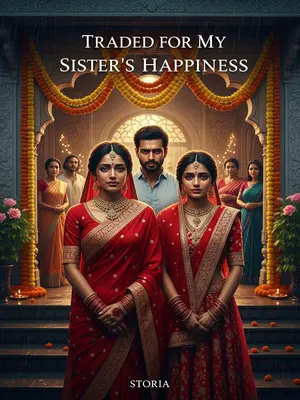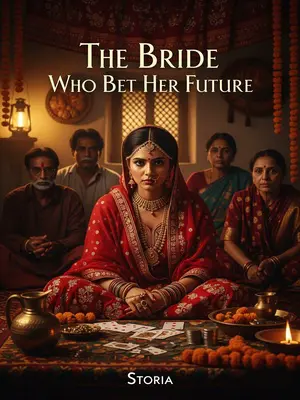Chapter 3: The Poison of Betrayal
Rohan appeared again a few days later, unannounced, slipping in like a shadow. I barely looked at him, focusing on the rangoli patterns I had traced that morning—trying to find beauty in the chaos.
He slid a strip of tablets into my palm, glancing over his shoulder to make sure no one was watching. It was a strip of contraceptive pills. The cold, clinical gesture stung. In our world, such things were never discussed openly; to hand them to me was an insult wrapped as concern.
He said, “You are not yet married. If you become pregnant, you will be looked down upon.” His words were sharp, as if my reputation was his to manage. I could hear the imagined voices of nosy aunties—“Log kya kahenge?”—their judgment stinging more than ever.
For a moment, his words sounded as if he cared. My heart yearned for kindness, but my mind knew better. I stared at the pills, dazed, my hand trembling. The packet slipped from my grasp, and my eyes darted to the closed door, terrified someone would walk in and see.
Seeing I didn’t reply, Rohan frowned. “Don’t tell me—”
“Don’t tell me you’re already pregnant?”
The words echoed in the silence. My cheeks flushed with shame and anger. Did he think so little of me?
I looked up at him, at the face that had once brought me happiness, and whispered, “What if I am?” My voice carried all the pain I’d been holding back.
Rohan replied without hesitation, “If you are, then take an abortion pill. How can you give birth before the main wife does?”
The words cut deeper than any knife. My future, my body, my dignity—everything subject to his convenience. I felt my resolve harden. I would not let him dictate my life any longer.
My face was a mask. He seemed to realise he had demoted me from wife to second wife. For a moment, uncertainty flickered in his eyes. He forced a smile. “Priya, don’t worry. You are always different in my heart. What’s the difference between main wife and second wife? As long as we care for each other, that’s enough.”
But I saw through him. In our world, the difference is everything. The main wife holds the keys to the house, respect, the right to perform rituals. The second wife lives in the shadows.
I couldn’t help but ask, “If there’s no difference, why did you scheme to make me the second wife and let Meera be the main wife?”
Rohan’s face darkened. “What kind of talk is this? You’re already so petty before even marrying in. If you became the main wife, wouldn’t my household be in chaos?”
Petty. The accusation stung. I was taught to be generous, forgiving. Yet here I was, accused of pettiness for wanting what was rightfully mine.
I was raised to be virtuous and gentle; the only time I let myself go was with him. I never objected to him taking another wife. He was the one who swore loyalty, coaxing me, promising forever.
When he held me, he said he wished he could see me jealous. I thought I’d met someone who truly loved me.
Now—
It was as if a bucket of cold water had been poured over me, chilling me to the bone. The truth was bitter, and it left me numb. I wrapped my arms around myself, shivering with the knowledge of my own gullibility.
I ignored Rohan and turned to leave. He reached out, trying to grab my wrist, but I pulled away. “Priya, like this, no man but me would want you.”
His words were meant to wound, but I refused to let them. My head held high, I walked away, determined to reclaim my dignity.
He was wrong. He did not know the strength I had inherited from generations of women before me. My worth was not defined by him, or anyone else.
I had a good reputation, and my family was upright and respected. Before him, many distinguished young men had come to propose. My mamas and mamis joked about marrying their sons to me. I had chosen love over everything, believing that shared history was enough. It was all my misjudgment.
Papa called me over and gave me a list of eligible young men. He hesitated, then gently placed his hand on my head, whispering, “Jo bhi ho beta, main hamesha tere saath hoon.” My tears fell, a mix of relief and grief, as I touched his feet, gratitude and sorrow mingling in my heart.
My future husband’s family was finally settled—a prominent clan in distant Kaveripur. The news spread quickly. Relatives called with congratulations, neighbours whispered behind closed doors. For the first time in days, a sliver of hope glimmered—maybe, just maybe, I could find happiness again.
And in the silence of my room, I heard the gentle tick of the wall clock and the distant hiss of a neighbor’s pressure cooker, as if the world itself was marking the end of one chapter and the trembling beginning of another.






